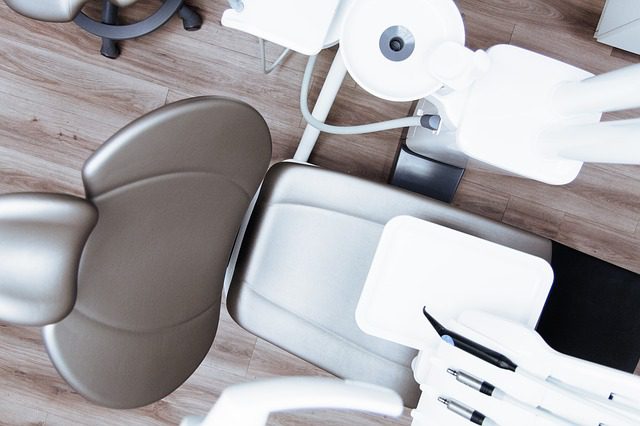Feeling nervous about your upcoming procedure? We get it. Dr. Puckett and his caring staff understand that oral surgery, especially when it comes to those that require sedation methods, is not something anyone looks forward to. Many people are apprehensive about the idea of being “put under.” Dental anxiety before or when you get to a local oral surgeon’s office is completely normal and nothing to be embarrassed over—getting put under with sedatives used in oral surgeries is a feeling of losing control, if only temporary. They may also face heightened anxiety over the prospect of oral surgery, even for relatively minor procedures like soft tissue grafting. There might be an underlying fear of needles or just a general fear of dentists. Whatever the case is, we’re here for you, and as holistic and compassionate oral healthcare providers, we’re dedicated to ensuring that our patients have the best experience possible. We’re used to seeing all kinds of patients, and dental anxiety is nothing that we’re not used to.
Part of a successful oral surgery is making it as comfortable as possible, which is why we offer sedation options with anesthesia: so you’re pain-free and at-ease. So don’t worry; you’re in good hands. Our gentle and caring team is here to assist you and put you at ease. So, whether you’re in for an affordable removal of wisdom teeth or something like bone grafting around your teeth and mouth, and you end up needing anesthesia, rest assured that you’re in excellent hands and will be taken care of to the best of our ability. It’s one of the reasons why our patients love us and we’re one of the top-rated oral surgeons in the Cincinnati area.
Why Dental Sedation is Often Necessary in Oral Surgery
If you’re coming in for something as easy as a same-day dental implant, you might think you’re able to fully avoid sedation, however in a lot of cases, a patient might actually need sedation for what some would consider relatively minor procedures. Similarly, you may be wondering why you’d need any sedation for a procedure like a simple tooth extraction. We promise we don’t needlessly administer sedatives unless we’ve determined our patients would need them or benefit from them. Aside from dental anxiety, there are actually quite a few reasons we offer patients multiple options for sedation dentistry during their oral surgery:
- Your teeth are sensitive.
- You have an overactive gag reflex.
- The patient is a child.
- The patient is neurodivergent in a way that makes them reactive to stressful situations or their behavior unpredictable.
- You have a heart condition.
- You have a movement disorder.
- You have a low pain threshold.
- The oral or maxillofacial procedure is long/complex/extensive, etc.
Addressing Your Concerns About Anesthesia & Sedation for Oral Surgery
To help alleviate your concerns regarding anesthesia and sedation for oral surgery, we’ll sit down with you and discuss your options. We review every detail of the anesthesia procedure — what to expect, recovery times, and various alternatives you may be able to choose. Anesthesia administered for oral surgeries is safe and effective. While patients are bound to have concerns related to it, we’re here to answer questions every step of the way and assure you that you’re in caring hands. And who knows—you might walk away learning something about sedatives that’s able to ease some of the anxiety surrounding them.
Types of Anesthesia & Common Procedures
The type of anesthesia we’ll discuss in your consultation will largely depend on the extent of the oral procedure you’re having done. After all, pulling a tooth is a little different than installing a dental implant, and having removal of all four wisdom teeth is a lot different. Depending on what you’re visiting your local, experienced mouth surgeon for is going to affect the kind and dosage of the anesthesia provided. Sometimes localized anesthesia is all that’s needed for relatively minor operations like having zirconium tooth implants installed, while something more intensive is going to require a patient to be put under. Our oral surgeon is experienced and certified in all forms of anesthesia, so don’t worry; we’ve got you:
Local anesthesia is administered by injection at the site of the procedure. It blocks nerve receptors at the site so you can’t feel pain in that area. We use local anesthesia for simple procedures like fillings, crowns and minor extractions. With local anesthesia, you’re awake for the entire procedure. You’ll still be able to (kind of) converse with your oral surgeon, and you’re fully cognizant—you just won’t be able to feel the poking, prodding, and drilling that’s happening on the inside of your mouth. Once the procedure is finished, the localized anesthesia wears off, and your nerve receptors return to normal. By then, whether you opted for a tooth replacement that’s totally holistic or not, you’ll have methods of reducing the pain you begin to feel.
General anesthesia is administered via IV. It puts you in a chemically-induced sleep that doesn’t allow you to feel pain during the oral surgery. General anesthesia is used for complex surgeries like full mouth reconstructions, maxillofacial surgery and wisdom tooth removals. This is the type of sedative most commonly used in oral surgeries that triggers patients’ dental anxiety. Again—we totally get it. The sensation is a little weird, but when you’re in trusted, capable hands, you have very little to worry about in actuality.
Types of Sedation for Oral Surgery
The type of sedation we’ll use for your dental procedure also depends on the extent of the surgery, but it more so depends on your preferences. Like we discussed, people that have conditions like anxiety, a sensitive gag reflex, or a movement disorder might need complete sedation for a simple procedure like a filling. When a dental surgeon is working in a mouth, it’s a very tiny space to be moving around in, and surgeons have to have incredibly steady hands. If someone does have, say, a movement disorder, it would make things much more complicated during the procedure a patient is in for. If a patient is in for something like a quick and easy tooth replacement, the surgeon needs to be able to make precise movements, which can be hindered if the patient is jerking around left and right.
There are 4 types of sedation we use for oral surgery:
Oral Anti-Anxiety Medications for Simpler Surgeries
If your oral surgery is a simple procedure like the soft tissue grafting we mentioned, or a simple tooth extraction, we provide sedation options that are more for your own comfort than anything else. Oral sedatives like diazepam usually do the trick; you’re awake for the procedure, but drowsy and relaxed.
Most of the time for minor procedures, the sedatives that are administered are similarly minor themselves. Again, depending on the exact condition of the patient, we may need to utilize something stronger, but in general, simpler surgeries require simpler oral anesthetics.
Sedation by Local Injection for Pediatric Oral Surgeries
For children, we often use intramuscular sedation for oral surgery in the form of a shot, as it’s simple to administer, completely safe, and saves the child the stress and trauma of a situation they may find scary or might not understand. Oral surgeons specialized in pediatric care will best understand how to take care of a child patient and offer them the best experience possible. Pediatric oral surgeries can be intimidating for children, and intramuscular anesthetic offers them the best possible outcome—it makes for a completely painless oral surgery, and they won’t have to face any kind of trauma surrounding dentists and their mouth.
Conscious & Unconscious Anesthesia for Complex Procedures
For more complicated oral surgeries like dental bone grafting, extracting an impacted wisdom tooth, or having dental implant surgery, we provide IV sedation that ranges from a light unconsciousness to complete unconsciousness with general anesthesia. Given the time that it takes to complete more complicated procedures like these—not to mention the amount of precision required on a talented oral surgeon’s part—it only makes sense to have patients enter some form of unconsciousness during the procedure. Not only does it make our job easier, but it also saves the patient a lot of grief and discomfort.
- Conscious IV sedation involves administering anti-anxiety medications via IV. Typically, patients are awake but groggy, and usually have little to no memory of the procedure.
- General anesthesia, or twilight sedation, is the most powerful type of sedation used for complex oral surgery procedures because it keeps you unconscious and pain-free.
Our office does not use nitrous oxide as a sedation method. Of all the options to pair with anesthesia during an oral surgery, nitrous is less safe, less reliable, and can cause nausea and vomiting.
We’re here for you. We like to think of our patients as an extended family. Our staff does everything we can so you feel as safe, relaxed and as comfortable as possible. We welcome your questions and concerns, so never be afraid to ask questions about anesthesia, sedation, your procedure, or anything else about the oral surgery process. As one of the top holistic oral healthcare providers in the area, we’re committed to our patients and their health—oral and mental. If you’re experiencing anxiety over an upcoming procedure or a visit to our office, let us know. We can talk things over with you and do our best to ease any lingering anxiety over sedatives and anesthetics.
Dr. Puckett: Certified & Trained in IV Sedation for Oral Surgery
As an oral and maxillofacial surgeon, Dr. Puckett is extensively trained in the administration of sedatives, anesthesia and IV sedation to provide patients the highest level of safety and comfort. He is accredited by the state of Ohio. Wilmington Oral Surgery performs office-based IV anesthesia with the highest standards of care.
Most importantly, Dr. Puckett cares for the comfort and contentment of his patients. He routinely treats people from all age ranges, from geriatric to pediatric, including infants. He is specialized in treating medically complicated patients and will coordinate with your physician to ensure you receive the highest level of care, no matter your unique needs.
Learn more about the anesthesia and sedation options we offer patients for their oral surgeries, and feel free to reach out with any questions.








